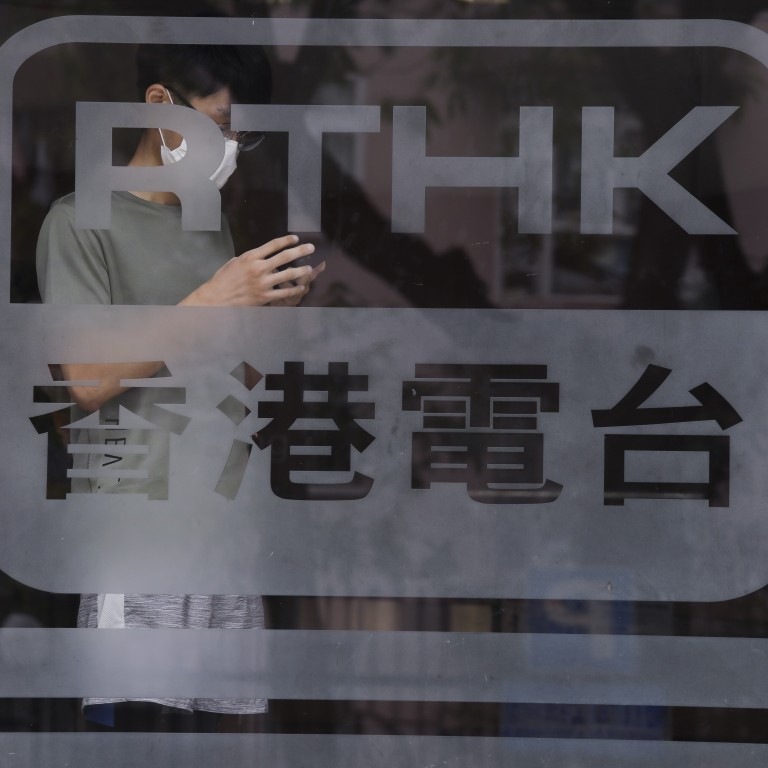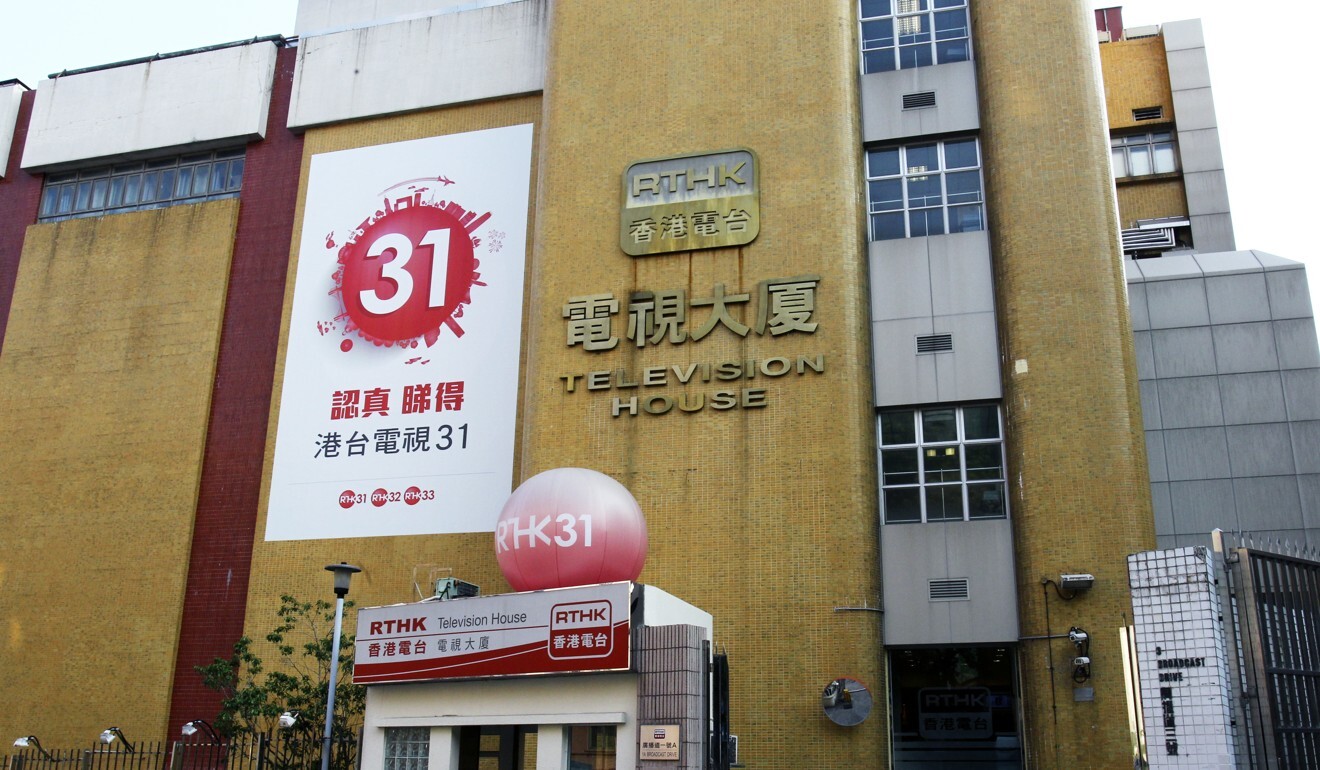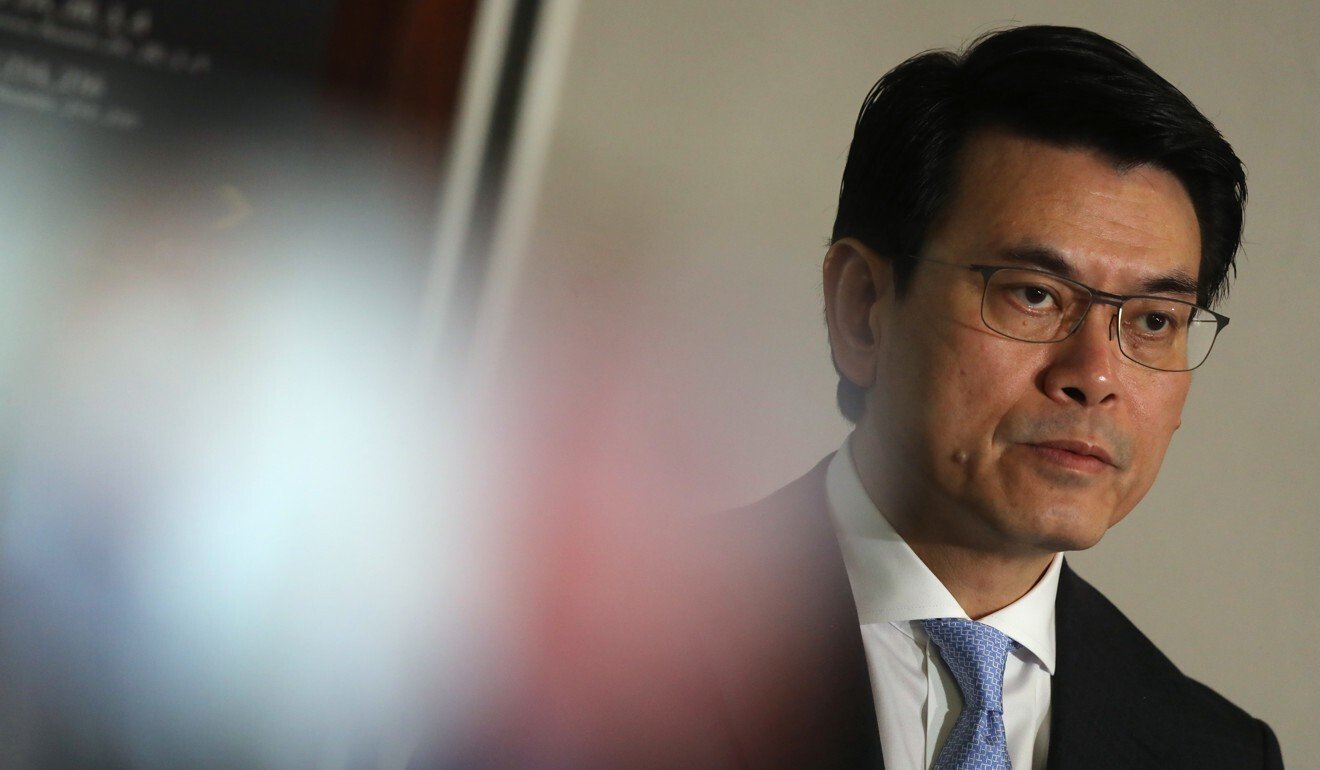
Hong Kong public broadcaster RTHK to undergo management review by civil servants following series of controversies
- Move triggers accusations the government is trying to erode the broadcaster’s independence, though authorities say editorial decisions will not be examined
- The review will cover RTHK’s administrative issues, including financial control, human resources and procurement, commerce bureau says
Public broadcaster RTHK will undergo a thorough management review led by civil servants, Hong Kong’s commerce bureau has revealed, following a series of controversies over the station’s output.
The review, set to start in mid-2020 and finish by the year’s end, will cover RTHK’s administrative issues, including its financial control, human resources and procurement.
The management and the programme contents of RTHK have aroused wide public concern recently
The progress in the implementation of the government’s Audit Commission report in 2018, which had exposed a range of operational inefficiencies, will also be assessed.
“The management and the programme contents of RTHK have aroused wide public concern recently,” a statement from the Commerce and Economic Development Bureau said.
Commerce minister calls on Hong Kong broadcaster RTHK to review internal governance after watchdog rules satire ‘denigrated’ police
“RTHK must follow up on the matters in a proactive and positive manner, and a review should be conducted to ensure that it fully abides by the charter, duly meets its responsibility as a public service broadcaster and strictly complies with the relevant codes of practice issued by the Communications Authority.”
Emphasising RTHK was “a government department under the policy purview and the housekeeping oversight” of the bureau, it said the review team would report to the bureau’s permanent secretary.
The team will also review RTHK’s “overall management systems” to ensure full compliance with its charter, which specifies its mission, editorial independence and status and responsibilities in relation to the bureau.

The broadcaster has been embroiled in controversy of late, most recently after the Communications Authority ruled that a February 14 episode of the political satire show Headliner had “denigrated and insulted” the police force.
RTHK chief Leung Ka-wing had originally defended the show in March, but last Tuesday the station offered a public apology and said Headliner would be suspended when the current season ended in June.
Secretary for Commerce and Economic Development Edward Yau Tang-wah last month accused RTHK of violating the one-China principle after one of its reporters pressed a World Health Organisation representative on whether the body would accept Taiwan as a member.
A spokeswoman for the station said it would “cooperate and provide necessary assistance” to the review team.
Hong Kong public broadcaster RTHK apologises to police over satirical show that portrayed officers as trash and hoarding masks
But the RTHK Programme Staff Union said the government’s plan raised suspicions the authorities were attempting to “take full control immediately” and “showed disregard for RTHK head Leung’s position as the station’s editor-in-chief”.
The union’s statement also said the station management had already begun taking measures to make the improvements suggested by the Audit Commission, while RTHK had a system in place to deal with audience complaints and suggestions.
The increasing control over RTHK is just part of Beijing and the Hong Kong government’s recent move to tighten its grip over the city
“The review team set up by the [bureau] is … equal to announcing strong-arm rule over RTHK, raising fears future programmes will only allow official voices and sideline the voice of the people,” the union said.
The problems exposed in the 2018 audit report included inadequate content that resulted in frequent re-runs of programmes, and high production costs of educational programmes, which were later outsourced.

Baptist University journalism lecturer Bruce Lui Ping-kuen said the announcement was expected, given the critical approach of some of the station’s programmes towards the government’s policies. “The increasing control over RTHK is just part of Beijing and the Hong Kong government’s recent move to tighten its grip over the city,” he said.
Lui said it was likely the government would try to turn the public broadcaster into a mouthpiece, either through more complaints against its programmes, or by forcing the station to air shows produced by mainland Chinese authorities.
IT sector lawmaker Charles Mok said he feared the review team could ask RTHK’s management to punish any employee who produced shows the government did not like.
In 2007, then chief executive Donald Tsang Yam-kuen appointed a seven-member committee, who were all non-officials and mostly journalism professionals or scholars, to review the public broadcaster.
RTHK chief urges staff to produce ‘fair and just’ news reports, asks those offended to ‘pardon’ station
The committee had recommended that there should be a new statutory independent broadcaster rather than RTHK, to get rid of its “civil-service culture”.
Two years later, the government tasked RTHK with being the city’s public service broadcaster, with new resources and a charter covering all the main aspects of its operation.
Chan King-cheung, former chief editor of Hong Kong Economic Journal and a member of the 2007 review committee, said the government had the right to review how public resources were spent by RTHK, “but the timing of this begs the question whether it is using the review of resources as a pretext to influence editorial direction”.
But Dr Eugene Chan Kin-keung, chairman of RTHK’s Board of Advisers, said he did not see a problem with the government-led review.
“People should understand RTHK is not just a public broadcaster, it is also a government department, so officials would better understand the relevant rules and regulations,” he said.
Chan said the concerns over RTHK losing its editorial independence were unfounded, as long as its shows were in line with its charter and were “factual”.
Help us understand what you are interested in so that we can improve SCMP and provide a better experience for you. We would like to invite you to take this five-minute survey on how you engage with SCMP and the news.


